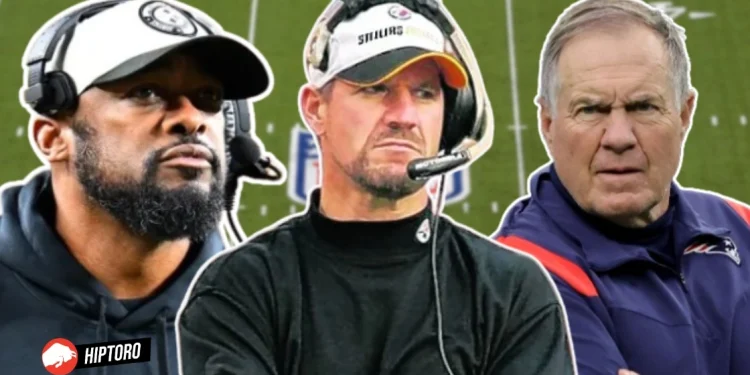The NFL is known for its intense competition, and coaching turnover is a common occurrence. However, some coaches have defied the odds, leaving a lasting legacy with one team. Here are the top 10 longest-tenured NFL coaches who have made a significant impact by staying loyal to a single franchise.
1. Bill Belichick – New England Patriots (2000-Present)
Bill Belichick’s tenure with the New England Patriots is a testament to his unparalleled coaching acumen and strategic genius. Since taking the reins in 2000, Belichick has transformed the Patriots into one of the most successful franchises in NFL history. His journey with the Patriots began on January 27, 2000, when he was named the head coach, following a controversial resignation from the New York Jets. This marked the beginning of an era defined by meticulous preparation, adaptability, and an unwavering commitment to excellence.

Belichick’s coaching philosophy revolves around the “Do Your Job” mantra, emphasizing individual responsibility and team cohesion. He is known for his ability to exploit opponents’ weaknesses, often devising game plans that neutralize their strengths. This approach has led to numerous iconic victories, including six Super Bowl championships, the most by any head coach in the Super Bowl era. His first Super Bowl victory came in the 2001 season when the Patriots, considered underdogs, defeated the St. Louis Rams in Super Bowl XXXVI. This victory was the first of many that would solidify Belichick’s legacy.
In conclusion, Bill Belichick’s tenure with the New England Patriots is a remarkable story of sustained excellence, strategic brilliance, and unparalleled success. His ability to adapt, innovate, and maintain a winning culture over two decades makes him one of the greatest coaches in NFL history. As he continues to lead the Patriots, his legacy only grows, leaving an indelible mark on the NFL and the sport of football.
2. Tom Landry – Dallas Cowboys (1960-1988)
Tom Landry’s tenure with the Dallas Cowboys is a cornerstone of NFL history, spanning an impressive 29 seasons. Landry, the first head coach in the franchise’s history, took the helm in 1960 and remained a steadfast leader until 1988. His influence on the team, the league, and the sport of football is profound, characterized by innovation, discipline, and a relentless pursuit of excellence.
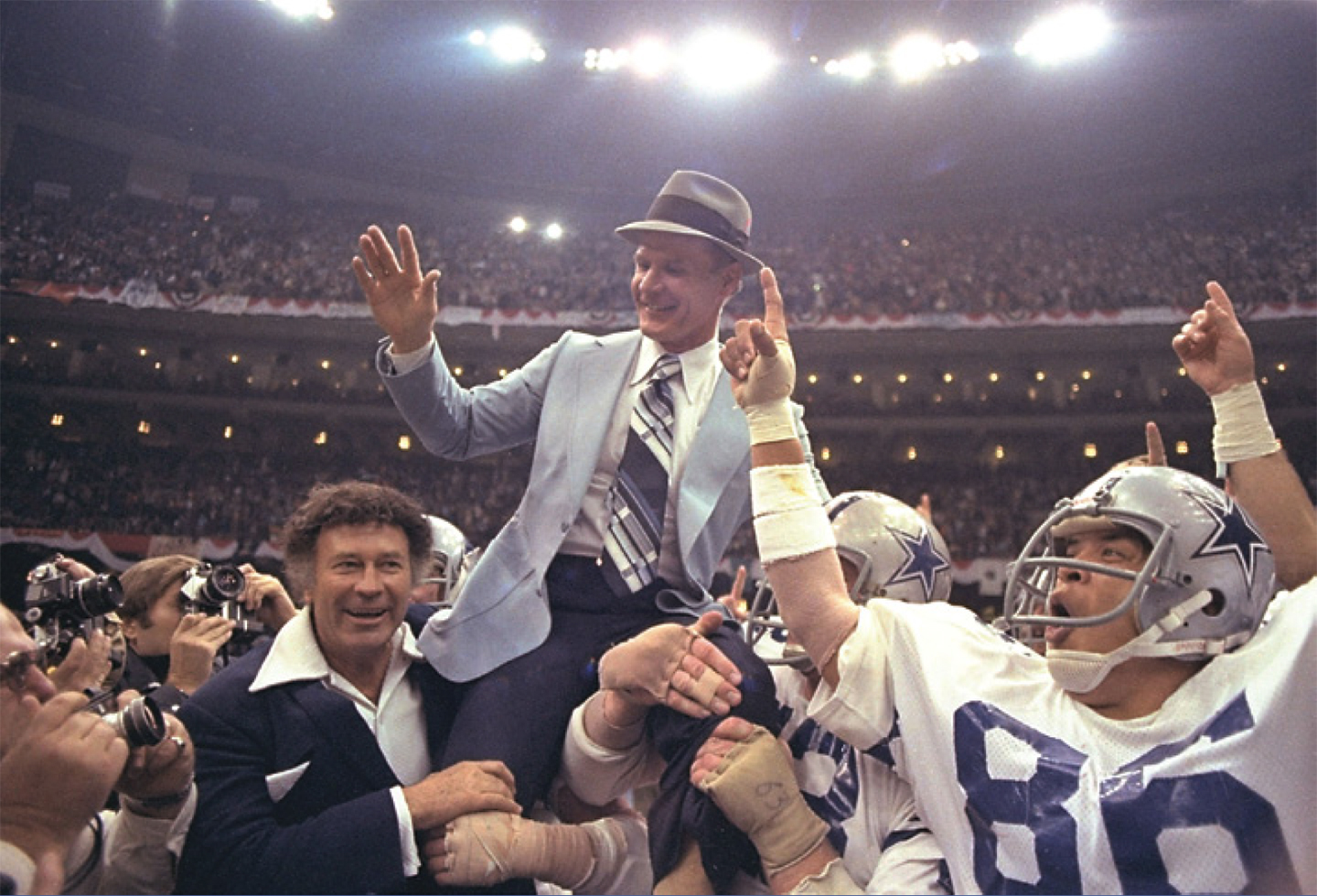
Landry’s coaching career began after a notable playing career with the New York Giants, where he played as a defensive back and later became their defensive coordinator. When the Cowboys were established as an expansion team in 1960, Landry was hired to lead the fledgling franchise. His first few seasons were challenging, with the Cowboys struggling to find their footing. However, Landry’s vision and innovative approach soon began to pay dividends.
Landry’s offensive strategies were equally groundbreaking. He was one of the first coaches to use pre-snap motion and shifts to create mismatches and confuse defenses. His implementation of the shotgun formation, where the quarterback stands several yards behind the center to receive the snap, provided quarterbacks with more time to read the defense and make plays. These strategic innovations helped the Cowboys become one of the most dynamic and versatile teams in the NFL.
In conclusion, Tom Landry’s 29-year tenure with the Dallas Cowboys is a testament to his innovation, leadership, and unwavering commitment to excellence. His strategic contributions transformed the game of football, and his legacy continues to inspire coaches and players alike. Landry’s influence on the Cowboys and the NFL is enduring, marking him as one of the greatest coaches in the history of the sport.
3. Don Shula – Miami Dolphins (1970-1995)
Don Shula’s tenure with the Miami Dolphins is one of the most storied and successful in NFL history. Spanning 26 seasons from 1970 to 1995, Shula’s time with the Dolphins is marked by an unparalleled level of success, innovation, and consistency. As the winningest coach in NFL history, Shula’s legacy is defined by his ability to build and sustain a winning culture, his strategic brilliance, and his commitment to excellence.

Shula’s journey with the Dolphins began on February 18, 1970, when he was hired as the head coach after a successful stint with the Baltimore Colts. His impact was immediate. In just his second season, Shula led the Dolphins to their first Super Bowl appearance, although they lost to the Dallas Cowboys. The following year, in 1972, Shula’s Dolphins achieved the only perfect season in NFL history, finishing with a 17-0 record and winning Super Bowl VII. This remarkable feat is a testament to Shula’s coaching prowess and remains unmatched in the annals of NFL history.
Under Shula’s leadership, the Dolphins were a model of consistency and success. He guided the team to five Super Bowl appearances, winning two (Super Bowl VII and VIII). His ability to adapt and innovate was a key factor in the Dolphins’ sustained success. Shula was known for his strategic acumen, particularly his ability to tailor his game plans to the strengths of his players and the weaknesses of his opponents. Whether it was the power running game led by Larry Csonka or the prolific passing attack with Dan Marino, Shula’s teams were always well-prepared and strategically sound.
In conclusion, Don Shula’s 26-year tenure with the Miami Dolphins is a remarkable story of sustained excellence, strategic brilliance, and unparalleled success. His ability to adapt, innovate, and lead over nearly three decades makes him one of the greatest coaches in NFL history. Shula’s legacy is defined by his commitment to excellence, his impact on the game, and his lasting influence on the Miami Dolphins and the broader football community.
4. Curly Lambeau – Green Bay Packers (1921-1949)
Curly Lambeau’s tenure with the Green Bay Packers is not only one of the longest but also one of the most influential in NFL history. As a co-founder of the Packers, player, and head coach, Lambeau’s 29-season run from 1921 to 1949 is marked by innovation, success, and a profound impact on the sport of football. His leadership and vision helped transform the Packers into a powerhouse and established many of the traditions and practices that define the NFL today.
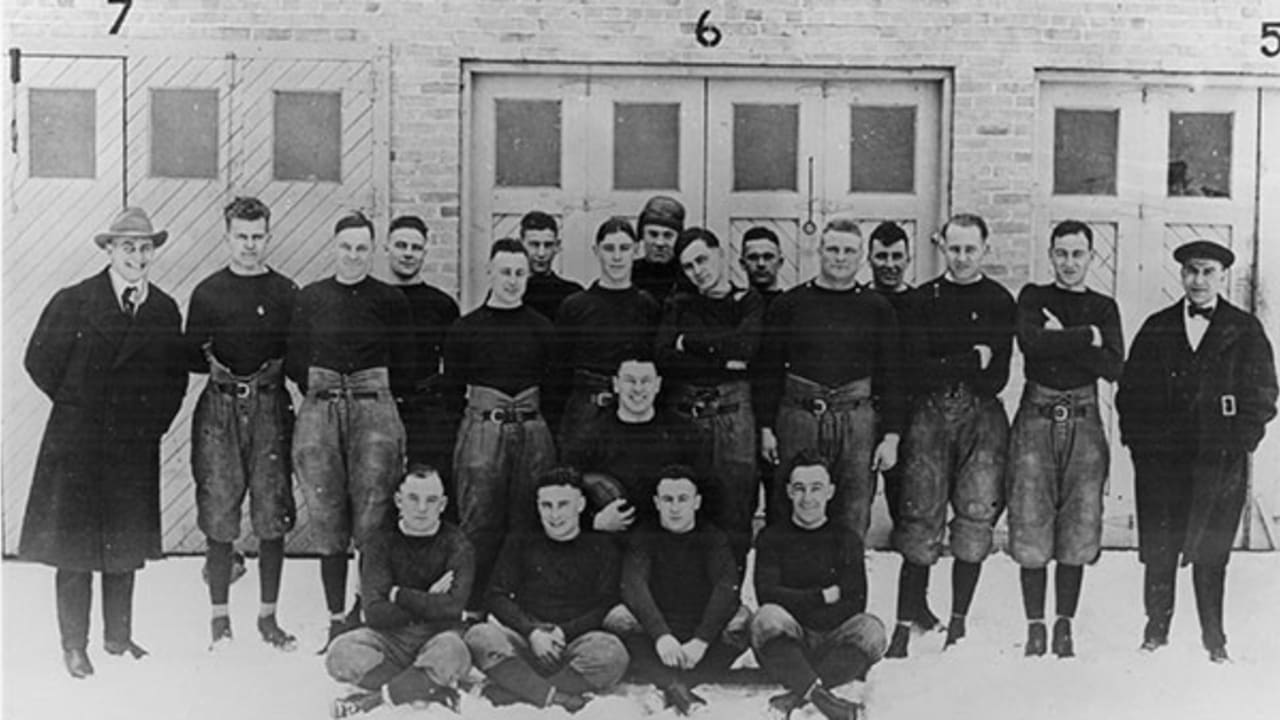
Lambeau’s journey with the Packers began in 1919 when he co-founded the team with George Calhoun. Initially, the team was part of the independent football circuit before joining the NFL (then known as the American Professional Football Association) in 1921. Lambeau served as both a player and the head coach, a dual role that was common in the early days of professional football. His passion for the game and his innovative approach quickly set the Packers apart.
One of Lambeau’s most significant contributions to the game was his implementation of the forward pass as a central element of his offensive strategy. At a time when football was dominated by the running game, Lambeau’s emphasis on the passing attack was revolutionary. He utilized formations and plays that maximized the effectiveness of the forward pass, leading to a more dynamic and exciting brand of football. This innovation not only contributed to the Packers’ success but also helped shape the evolution of the game.
In conclusion, Curly Lambeau’s 29-season tenure with the Green Bay Packers is a testament to his vision, innovation, and leadership. His contributions to the game of football, both on and off the field, have left a lasting legacy that continues to influence the sport today. Lambeau’s ability to innovate, his commitment to excellence, and his dedication to the Packers helped shape the NFL and establish many of the traditions and practices that define the league. His legacy as one of the greatest coaches in NFL history is secure, and his impact on the game will be felt for generations to come.
5. Chuck Noll – Pittsburgh Steelers (1969-1991)
Chuck Noll’s tenure with the Pittsburgh Steelers is a cornerstone of NFL history, spanning 23 seasons from 1969 to 1991. Noll’s leadership transformed the Steelers from perennial underachievers into a dynasty, marked by four Super Bowl victories in the 1970s. His influence on the team, the league, and the sport of football is profound, characterized by innovation, discipline, and a relentless pursuit of excellence.
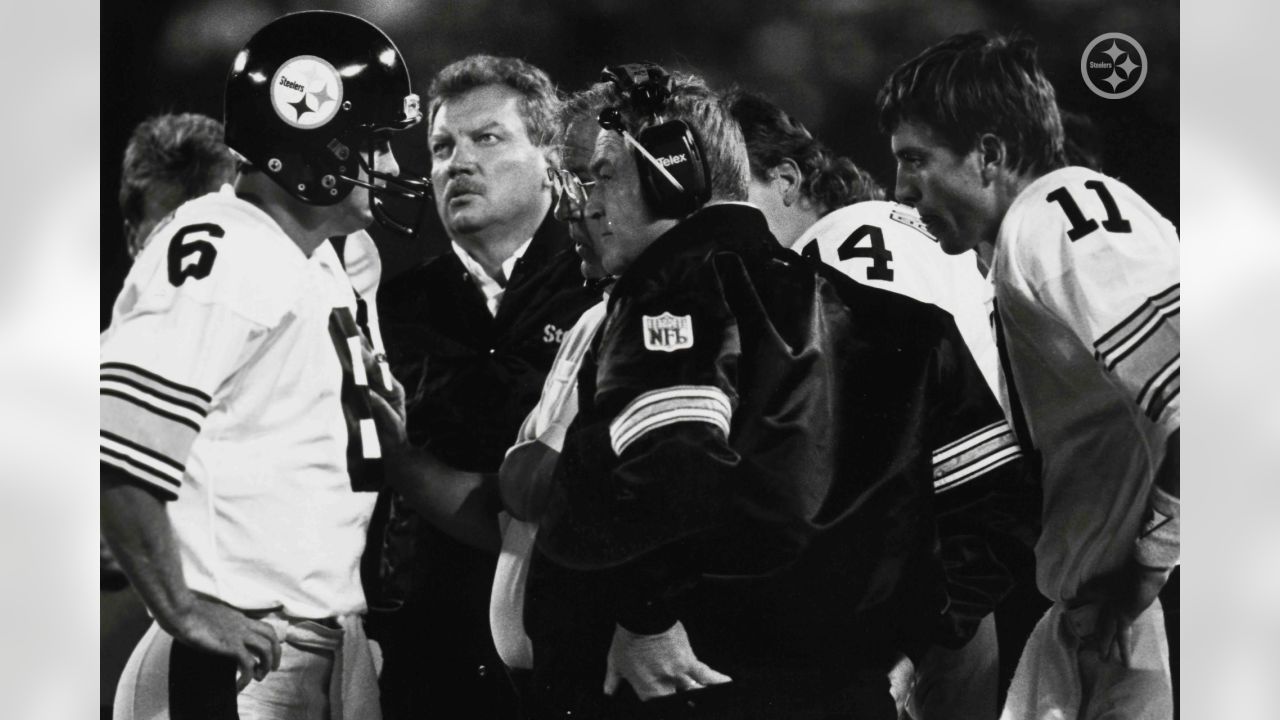
When Noll took over as head coach in 1969, the Steelers were one of the worst teams in the NFL. The franchise had experienced only a handful of winning seasons since its inception in 1933. Noll’s arrival marked the beginning of a new era. His coaching philosophy emphasized building a strong foundation through the draft, focusing on acquiring talented, high-character players who could contribute to a winning culture. This approach was evident in his first draft class, which included future Hall of Famers Joe Greene and L.C. Greenwood.
One of Noll’s most significant contributions to the game was his ability to draft and develop talent. His eye for identifying and nurturing talent was unparalleled. The 1974 draft class, which included four future Hall of Famers (Lynn Swann, Jack Lambert, John Stallworth, and Mike Webster), is widely regarded as the greatest draft class in NFL history. Noll’s emphasis on player development and his ability to get the best out of his players were key factors in the Steelers’ success.
In conclusion, Chuck Noll’s 23-season tenure with the Pittsburgh Steelers is a testament to his innovation, leadership, and unwavering commitment to excellence. His strategic contributions transformed the game of football, and his legacy continues to inspire coaches and players alike. Noll’s influence on the Steelers and the NFL is enduring, marking him as one of the greatest coaches in the history of the sport.
6. Bud Grant – Minnesota Vikings (1967-1983, 1985)
Bud Grant’s tenure with the Minnesota Vikings is a significant chapter in NFL history, spanning 18 seasons from 1967 to 1983, with a brief return in 1985. Known for his stoic demeanor and disciplined approach, Grant’s leadership transformed the Vikings into a formidable team, leading them to four Super Bowl appearances. His impact on the team, the league, and the sport of football is profound, characterized by innovation, resilience, and a relentless pursuit of excellence.
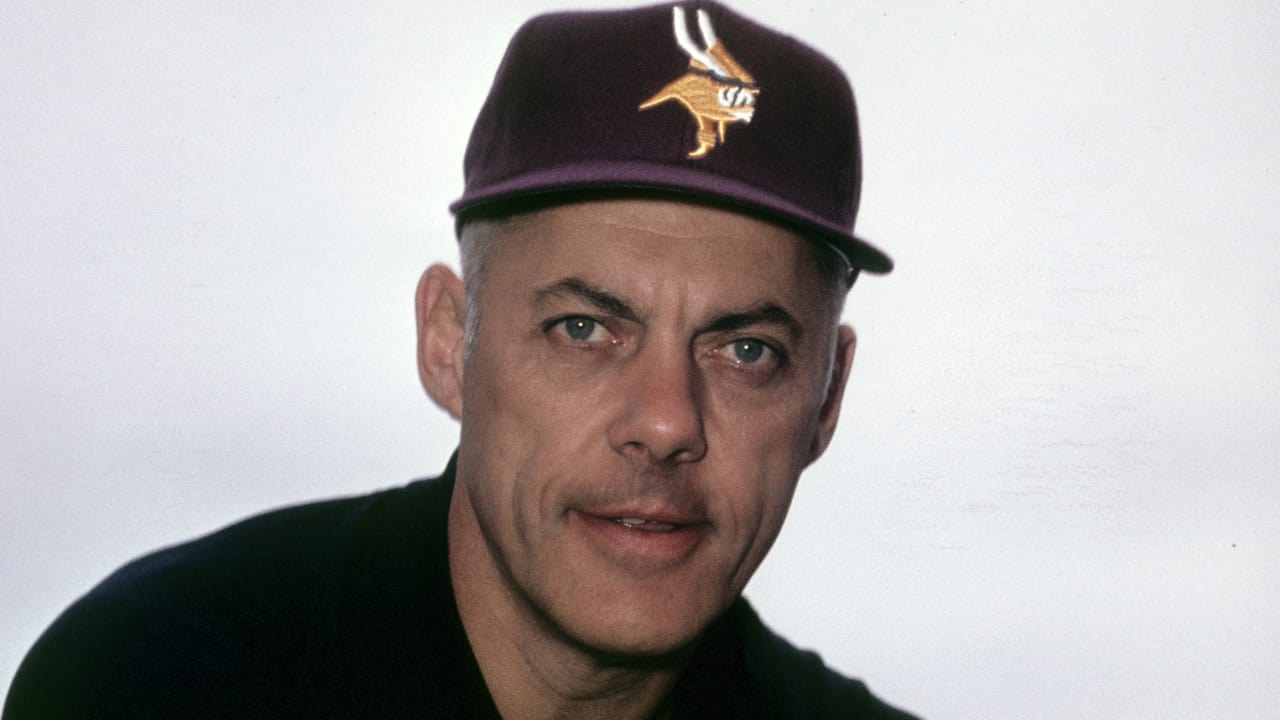
Grant’s journey to the NFL was unconventional. Before his coaching career, he played professional football and basketball, including a stint with the Minneapolis Lakers, where he won an NBA championship. His coaching career began in the Canadian Football League (CFL), where he achieved considerable success with the Winnipeg Blue Bombers, winning four Grey Cups. In 1967, Grant was hired as the head coach of the Vikings, bringing his winning pedigree and innovative strategies to the NFL.
One of Grant’s most significant contributions to the game was his emphasis on discipline and fundamentals. He instilled a culture of professionalism and accountability within the Vikings organization. Grant’s teams were known for their physicality, discipline, and execution. His defensive units, known as the “Purple People Eaters,” featuring players like Alan Page, Carl Eller, and Jim Marshall, were among the most dominant in NFL history. Grant’s defensive schemes emphasized toughness and versatility, allowing the Vikings to adapt to various offensive strategies effectively.
Offensively, Grant’s teams were characterized by a balanced approach, featuring a strong running game and efficient passing attack. He was known for his ability to develop and utilize talent, bringing in players who would become key contributors, such as quarterback Fran Tarkenton and running back Chuck Foreman. Grant’s ability to adapt his strategies to his players’ strengths was a key factor in the Vikings’ sustained success.
In conclusion, Bud Grant’s 18-season tenure with the Minnesota Vikings is a testament to his innovation, leadership, and unwavering commitment to excellence. His strategic contributions transformed the game of football, and his legacy continues to inspire coaches and players alike. Grant’s influence on the Vikings and the NFL is enduring, marking him as one of the greatest coaches in the history of the sport.
7. George Halas – Chicago Bears (1920-1967)
George Halas, also known as “Papa Bear,” was a founding member of the NFL and coached the Chicago Bears for an incredible 40 seasons. Halas led the Bears to six NFL championships and was a pioneer in the development of professional football. His impact on the game is immeasurable, and his legacy as one of the greatest coaches in NFL history is secure.

Halas’s journey to the NFL began in 1920 when he co-founded the Decatur Staleys, which later became the Chicago Bears. As a player-coach, Halas led the team to success both on and off the field. His vision and leadership helped establish the Bears as one of the premier franchises in the NFL. Halas’s ability to innovate and adapt to the changing dynamics of the league was a key factor in the Bears’ sustained success.
One of Halas’s most significant contributions to the game was his development of the T-formation, which revolutionized offensive football. The T-formation, featuring a quarterback under center, three running backs, and a balanced offensive line, allowed for greater versatility and unpredictability in the offense. This innovation led to the Bears’ dominance in the 1940s, including their famous 73-0 victory over the Washington Redskins in the 1940 NFL Championship Game.
In conclusion, George Halas’s 40-season tenure with the Chicago Bears is a testament to his vision, innovation, and leadership. His contributions to the game of football, both on and off the field, have left a lasting legacy that continues to influence the sport today. Halas’s ability to innovate, his commitment to excellence, and his dedication to the Bears helped shape the NFL and establish many of the traditions and practices that define the league. His legacy as one of the greatest coaches in NFL history is secure, and his impact on the game will be felt for generations to come.
8. Bill Cowher – Pittsburgh Steelers (1992-2006)
Bill Cowher’s 15-year tenure with the Pittsburgh Steelers is marked by his fiery coaching style, defensive prowess, and unwavering commitment to excellence. Cowher took over as head coach in 1992, following the legendary Chuck Noll, and quickly made his mark on the franchise. His leadership and strategic acumen transformed the Steelers into perennial contenders, culminating in a Super Bowl victory in 2005.

Cowher’s coaching career began after a successful playing career as a linebacker, primarily with the Philadelphia Eagles and the Cleveland Browns. His transition to coaching saw him serve as an assistant with the Browns and Kansas City Chiefs before being hired by the Steelers. Cowher’s intense demeanor and passion for the game were immediately evident, and his impact was felt from his first season, leading the Steelers to an 11-5 record and an AFC Central division title.
One of Cowher’s most significant contributions to the game was his emphasis on defense and physicality. His teams were known for their aggressive, hard-hitting style of play, particularly on the defensive side of the ball. The Steelers’ defenses under Cowher were consistently among the best in the league, featuring standout players like Kevin Greene, Rod Woodson, and Joey Porter. Cowher’s defensive schemes emphasized pressure and versatility, often disrupting opponents’ game plans and creating turnovers.
In conclusion, Bill Cowher’s 15-year tenure with the Pittsburgh Steelers is a testament to his innovation, leadership, and unwavering commitment to excellence. His strategic contributions transformed the game of football, and his legacy continues to inspire coaches and players alike. Cowher’s influence on the Steelers and the NFL is enduring, marking him as one of the greatest coaches in the history of the sport.
9. Marv Levy – Buffalo Bills (1986-1997)
Marv Levy’s tenure with the Buffalo Bills is one of the most remarkable in NFL history, characterized by resilience, innovation, and a relentless pursuit of excellence. Spanning 11 seasons from 1986 to 1997, Levy’s time with the Bills is best remembered for leading the team to four consecutive Super Bowl appearances in the early 1990s. Although the Bills did not win a Super Bowl, Levy’s ability to consistently reach the championship game is a testament to his coaching prowess and leadership.
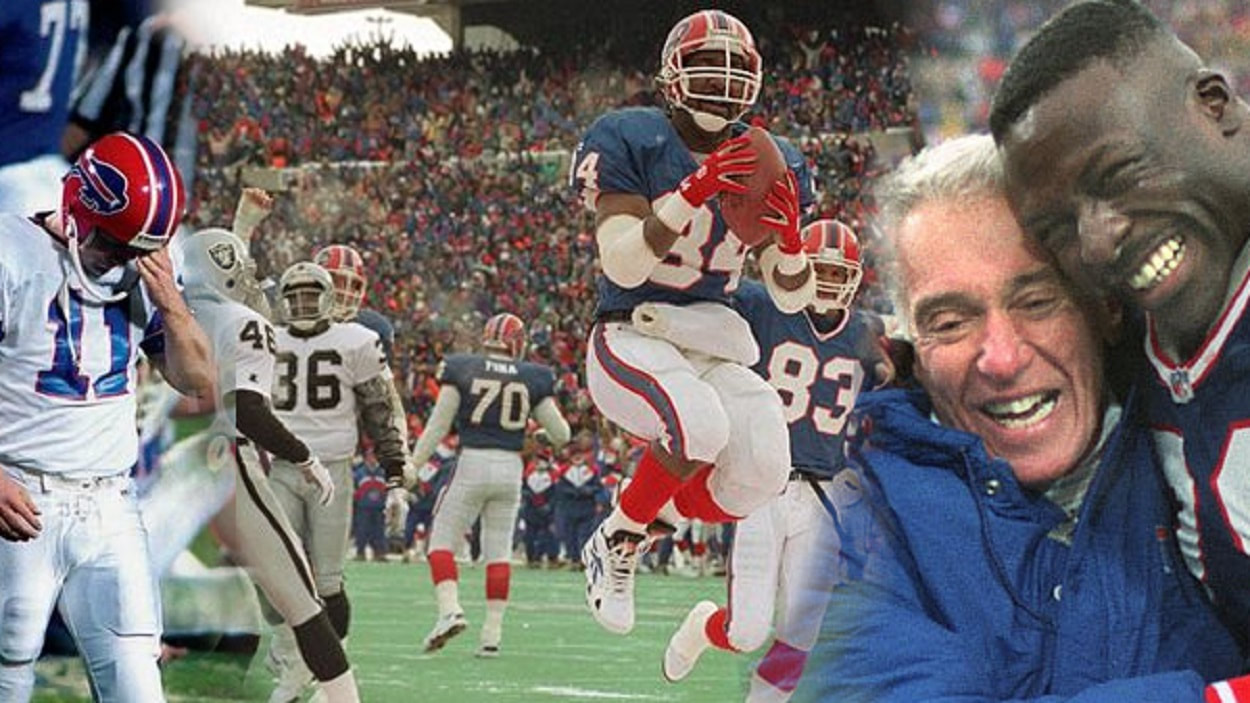
Levy’s coaching career began after a successful stint as an assistant coach in college football and the NFL. Before joining the Bills, he served as the head coach of the Kansas City Chiefs from 1978 to 1982. In 1986, Levy was hired as the head coach of the Bills, taking over a struggling franchise. His impact was immediate, as he instilled a culture of discipline, preparation, and teamwork within the organization.
One of Levy’s most significant contributions to the game was his implementation of the no-huddle offense, a fast-paced, high-tempo approach that kept opposing defenses off balance. This innovation, developed in collaboration with offensive coordinator Ted Marchibroda and quarterback Jim Kelly, revolutionized the Bills’ offense and made them one of the most explosive teams in the NFL. The no-huddle offense allowed Kelly to read defenses at the line of scrimmage and make quick decisions, maximizing the team’s offensive efficiency.
In conclusion, Marv Levy’s 11-season tenure with the Buffalo Bills is a testament to his innovation, leadership, and unwavering commitment to excellence. His strategic contributions transformed the game of football, and his legacy continues to inspire coaches and players alike. Levy’s influence on the Bills and the NFL is enduring, marking him as one of the greatest coaches in the history of the sport.
10. Mike Tomlin – Pittsburgh Steelers (2007-Present)
Mike Tomlin has been the head coach of the Pittsburgh Steelers since 2007, making him one of the longest-tenured active coaches in the NFL. Tomlin’s leadership, strategic acumen, and commitment to excellence have made the Steelers a consistent force in the league. Under his guidance, the team has achieved remarkable success, including a Super Bowl victory and an enduring culture of winning.

Tomlin’s coaching career began after a successful playing career as a wide receiver at William & Mary. He transitioned to coaching with various assistant roles in college football and the NFL, including stints with the Tampa Bay Buccaneers and Minnesota Vikings. In 2007, Tomlin was hired as the head coach of the Steelers, becoming only the third head coach of the franchise since 1969. His appointment marked a new era for the team, following the legendary tenures of Chuck Noll and Bill Cowher.
One of Tomlin’s most significant contributions to the game is his ability to maintain a high level of consistency and competitiveness. In his first season, Tomlin led the Steelers to a 10-6 record and an AFC North division title. His immediate impact set the tone for his tenure, emphasizing discipline, preparation, and resilience. In 2008, Tomlin guided the Steelers to a Super Bowl victory in Super Bowl XLIII, defeating the Arizona Cardinals. At the age of 36, he became the youngest head coach to win a Super Bowl, a testament to his coaching prowess and leadership.
In conclusion, Mike Tomlin’s tenure with the Pittsburgh Steelers is a testament to his innovation, leadership, and unwavering commitment to excellence. His strategic contributions have transformed the game of football, and his legacy continues to inspire coaches and players alike. Tomlin’s influence on the Steelers and the NFL is enduring, marking him as one of the greatest coaches in the history of the sport.


